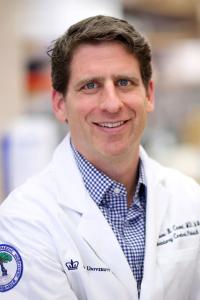Meet Our Summer 2024 Research Students
Oluwatobi Ariyo
Columbia University Vagelos College of Physicians and Surgeons first-year medical student, Oluwatobi Ariyo, has joined the Movement Recovery Lab as part of the NIH Summer Research Program. This competitive program provides a stipend to support research.
Oluwatobi studied neuroscience and philosophy as an undergraduate student at Harvard University, which helped prime his initial interest in the interplay between the brain and its role in our sense of agency. During the fall of his first semester, Oluwatobi's younger brother was in a car accident that paralyzed him from the waist down. This tragic event inspired Oluwatobi's interest in studying novel treatments for spinal cord injuries. He will be working alongside Dr. Jason Carmel and associate research scientist James McIntosh on a research project to study the effects of paired electrical stimulation of the motor cortex and lumbar peripheral nerves in enhancing lower limb function. Oluwatobi is excited about this project and how it can help launch him into a future career as a physician-scientist.
Zach Nam
Columbia University rising senior in Biology and Computer Science, Zach Nam is joining the Movement Recovery Lab again this summer. Zach’s project last summer made feasible a method in the lab to track the forelimb and digit movements of animal models during a fine motor task. This summer, he will continue the project investigating and quantifying the role of the reticulospinal tract in skilled forelimb capability.
An accomplished squash player who represented Seoul in the Korea Olympics and now member of Columbia’s Varsity Squash Team, few things are more important to Zach than proper hand and arm function. Zach says the lab’s research on neural circuits involved in healthy and injured arm and hand function, and how certain circuits can be manipulated to help restore motor function is perfectly meaningful and relevant to his interests. Zach will be mentored by postdoctoral research fellow, Windsor Ting, PhD.


